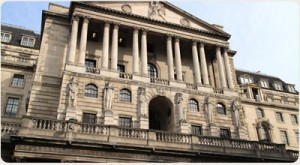The Bank of England today cut interest rates from 0.5% to 0.25% – their lowest ever level in the UK – and warned that unemployment will rise by a quarter of a million as Brexit hits the economy.
Bank governor Mark Carney described Brexit as “a very large identifiable supply shock” and did not rule out further interest rate cuts.
Today's reduction is the first movement in rates in more than seven years. The move was widely expected after the Bank’s rate-setting Monetary Policy Committee (MPC) decided last month to peg rates. MPC members today voted 9:0 in favour of the rate reduction.
The cut is intended to boost the UK economy as the historic decision to leave the EU in June’s referendum starts to hit growth. Recent economic data has been poor and many observers fear worse is to come.
The Bank today slashed its forecast for the UK economy for next year and 2018 and warned that unemployment will rise by around 250,000.
While it expects growth to remain at 2% this year, it cut its 2017 forecast from 2.3% to just 0.8% and down from 2.3% to 1.8% in 2018.
Mr Carney described today’s action as “timely, coherent and comprehensive” and said there was “no excuse” for banks not to pass the reduction in to customers.
In a package of measures, the Bank also plans to pump an additional £60bn into the economy to buy Government bonds – a move that will extend its quantitative easing (QE) programme to £435bn in total.
Another £10bn will be created to buy corporate bonds from firms “making a material contribution to the UK economy”.
A new scheme is to be created to provide up to £100bn of new funding to banks to help them pass on the base rate cut to the real economy.
The package was welcomed by business organisations. CBI chief economist Rain Newton-Smith said: “The combination of a rate cut and more quantitative easing should be a shot-in-the-arm for business and consumer confidence, lowering borrowing costs and keeping liquidity flowing through the economy.
“The Bank’s action will help restore confidence in the UK economy and what’s now most important to businesses is that the Government develops a clear plan and timetable for EU negotiations.
“At the same time, it must press ahead with domestic policy priorities, especially infrastructure decisions, which will allow firms to get on with serving their customers and investing for the future.”
However, not all economists are convinced the move will be effective.
Ahead of today’s decision, former MPC member Andrew Sentance – now senior economic adviser at PwC – warned it would be a “wasted gesture”.
The last cut in interest rates was in March 2009, when the financial crisis was at its height.
The pound tumbled by more than 1.5 cents against the dollar to $1.315 within minutes of the rate decision.
Members of the MPC were seriously concerned about the impact of the referendum result on the economy in their meeting today, according to minutes published shortly after the interest rate decision was announced.
The minutes say:
“Following the United Kingdom’s vote to leave the European Union, the exchange rate has fallen and the outlook for growth in the short to medium term has weakened markedly.
The fall in sterling is likely to push up on CPI inflation in the near term, hastening its return to the 2% target and probably causing it to rise above the target in the latter part of the MPC’s forecast period, before the exchange rate effect dissipates thereafter.
“In the real economy, although the weaker medium-term outlook for activity largely reflects a downward revision to the economy’s supply capacity, near-term weakness in demand is likely to open up a margin of spare capacity, including an eventual rise in unemployment.
“Consistent with this, recent surveys of business activity, confidence and optimism suggest that the United Kingdom is likely to see little growth in GDP in the second half of this year.”















